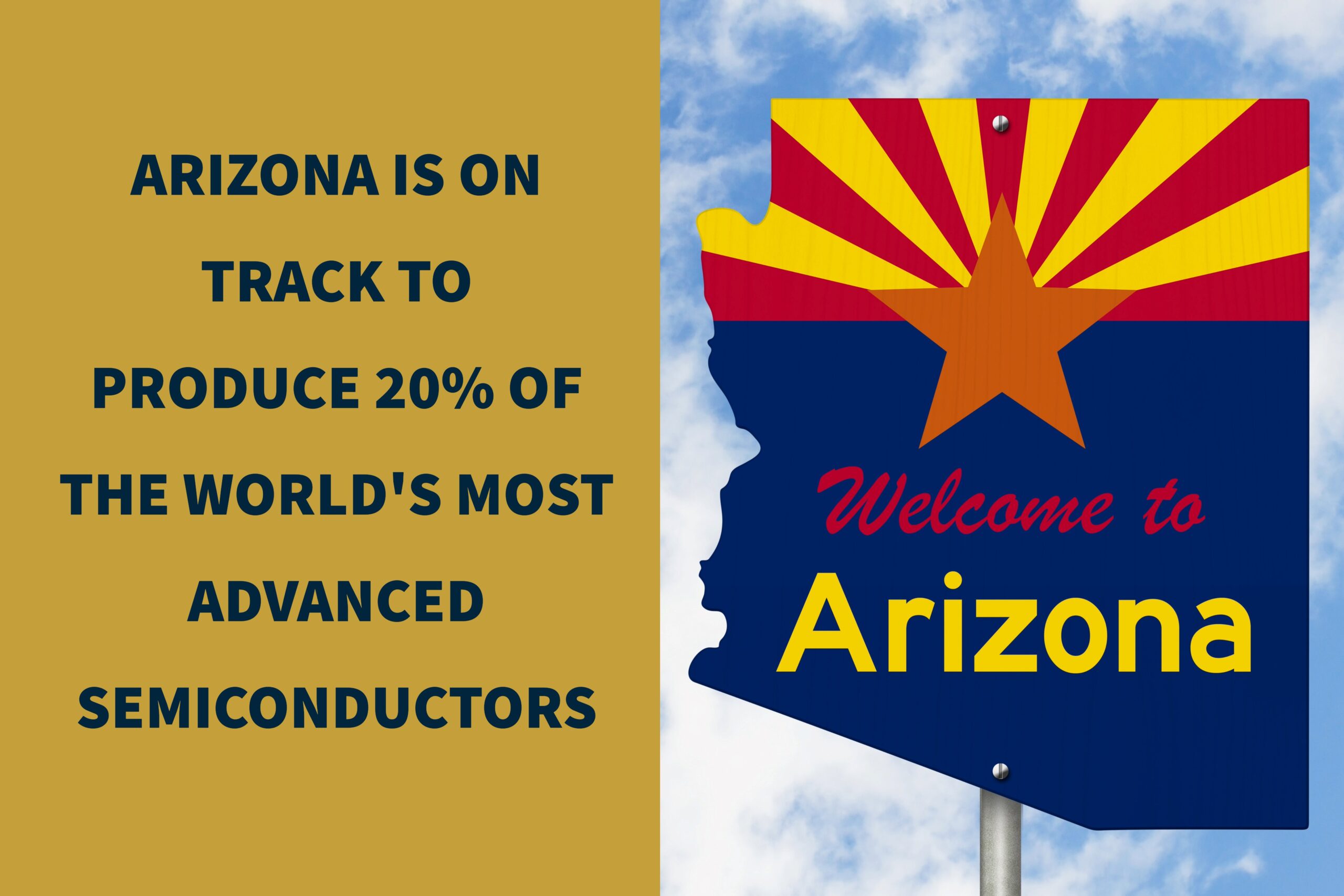
Key Takeaways
- Phoenix Leads in Manufacturing Job Growth: Phoenix, Arizona, stands out as the top city for manufacturing job growth in the United States, with over 15,000 new jobs created in 2023 alone.
- Advanced Manufacturing Technology: TSMC plans to introduce its most advanced chip-making technology in Arizona. This step reflects a strategic upgrade from TSMC’s initial plans, which involved using slightly older technology.
- Strategic Response to Geopolitical Risks: The expansion is driven by TSMC’s clients like Apple and the desire to mitigate risks associated with geopolitical tensions, particularly concerning Taiwan.
- Job Creation in Arizona: The project is expected to generate significant economic benefits for Arizona, including the creation of 6,000 high-tech jobs and 20,000 construction jobs, and thousands of indirect jobs related to suppliers and consumer industries.
- Economic Growth in Arizona: Once operational, these facilities will contribute to Arizona producing 20% of the world’s most advanced semiconductors.

Taiwan Semiconductor Manufacturing Co (TSMC), the global leader in semiconductor production, is set to manufacture its most advanced chips in Arizona. This move significantly boosts domestic manufacturing capabilities, particularly for chips that power artificial intelligence technologies.
Details of TSMC’s U.S. Expansion:
Originally, TSMC announced plans to build chip-making facilities in Arizona in 2021. Initially, there was some hesitation due to its extensive operations in Taiwan. However, due to pressure from both the U.S. government and its major customers, TSMC decided to expand its production capacity in the U.S. The company first planned to build facilities that would use slightly outdated technology compared to their Taiwanese operations. Now, TSMC has upgraded its plans and will equip its second Arizona plant with the latest technology by 2028 with a third plant beginning construction by 2030.
This expansion is largely driven by requests from key customers, such as Apple, AMD, Nvidia, MediaTec, Broadcom, Intel, and Qualcomm, leaders in mobile and AI chip technologies. These companies have stressed the importance of having a U.S. manufacturing option to avoid risks associated with geopolitical tensions or other disruptions, thus advocating for a diversification of production locations.
Phoenix has garnered attention as a leader in manufacturing job growth, outpacing other cities nationwide. The city’s strategic location, robust infrastructure, and business-friendly environment have attracted a surge of investment from manufacturing companies seeking expansion opportunities. With an influx of skilled labor and technological advancements, Phoenix has positioned itself as a hub for innovation and production excellence.
Economic and Job Growth in Arizona:
TSMC’s first Arizona factory is set to start producing chips using 4nm technology in early 2025. The second factory will begin making chips with the most advanced 2nm process technology, which includes the latest nanosheet transistors, alongside the earlier announced 3nm technology starting in 2028. A third factory in Arizona will commence construction by 2030, using 2nm or even more advanced processes. Each of these factories will feature cleanroom facilities about twice as large as those found in typical industry standard logic factories, maintaining TSMC’s high standards for advanced manufacturing.
The TSMC three factories are expected to provide 6,000 well-paying high-tech jobs, 20,000 construction jobs and thousands of indirect supplier and consumer jobs. These facilities will put Arizona on track to produce 20% of the world’s most advanced semiconductors.
Why the U.S. is Focusing on Domestic Chip Production:
The U.S. government is motivated to localize chip production due to several factors, primarily the geopolitical risks involving Taiwan, which is claimed by China. The U.S. is concerned that a conflict over Taiwan could jeopardize the concentrated chip production there, posing a risk to national security. In response, the government enacted the Chips and Science Act in 2022, which provides $39 billion in subsidies to chip manufacturers, alongside tax incentives and efforts to foster engineering expertise.
The initiative to safeguard the production of this crucial technology is paramount. Although the shift of some production to the U.S. was initially seen as a sensitive issue in Taiwan—where TSMC is considered a national treasure—the current understanding is that Taiwan’s role as a vital supply chain partner will ensure its continued importance on the global stage.










